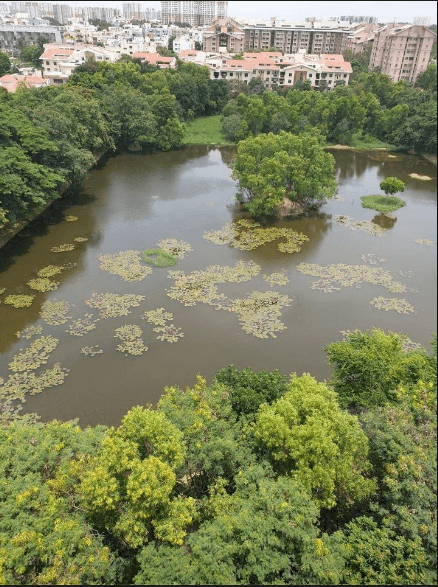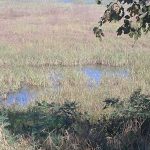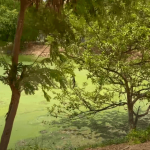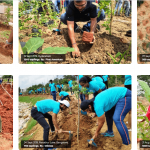By Anuksha Dey
Mahadevpura Parisara Samrakshane Mattu Abhivrudhi Samiti (Mapsas), a citizen-driven organisation, is about to enter its 10th year of looking after and reviving Bangalore’s lakes and reservoirs. The organisation has been working closely with BBMP and the residents around Soul Kere, Kaikondrahalli Kere, Kasavanahalli Kere, Lower Ambalipura Lake and Devarabisanahalli to maintain the biodiversity of these water bodies for over nine years.
Nature-first approach
Mapsas revives lakes to preserve Bengaluru’s biodiversity. The citizen body maintains wetlands, plants trees and cleans lakes to ensure that the water ecosystem continues to thrive. The organisation is against using lakes as recreational centres and tourist attractions as human activities, such as boating, change the quality of water and the behaviour of birds.
“Our focus is to preserve the water reservoirs, and the biodiversity,” says a trustee of Mapsas, on the condition of anonymity. “Humans come third in the list of our priorities. When a choice comes between what works for nature and what works with the residents, we will take the side of nature as it ultimately impacts humans.”
NITI Aayog recognition
Mapsas was founded in 2011, when a group of citizens came together to revive the Kaikondrahalli lake and the lower Ambalipura lake in their neighbourhood. The group’s work was recognised in 2019 when NITI Aayog identified its work on Kaikondrahalli lake as one of the two model lakes for lake rejuvenation work in India.
Soldiering on despite the pandemic
While 2020 has made many of us put our lives on hold, the organisation continued to function through the year. The abundant monsoon in 2020 has been beneficial for Bengaluru’s lakes. Saul Kere in Sarjapur, which was previously drying up, got a new lease of life as the rainwaters entered the waterbody. The organisation helped out by clearing weeds, introducing fishlings into the water, and transplanting a new batch of trees around the water body.
The lower Ambalipura lake in Sarjapur was revived this year by the rains as it overflowed with water. The lockdown and the pandemic made the lakes even more attractive to the migratory birds as human activity at the lakes had reduced.
Fighting buffer zone violators
Mapsas believes it is their responsibility to protect the lakes and the area around them from pollution and harmful human activities. While lakeside properties are attractive, most of these developments encroach upon the lake’s buffer zone, harming the natural biodiversity.
The National Green Tribunal (NGT) advises a 30-metre buffer zone around every lake where no construction is allowed. However, much of this land in Bengaluru is disputed as land sharks and private property holders lay claim to their ancestral land.
The Kasavanahalli and Kaikondrahalli lakes are currently flanked by three large properties which were built within their buffer zone by Godrej, Shriram Property, and Bren. This year, Mapsas was also involved in an NGT case about the building of a Godrej property near Kasavanahalli lake. The tribunal declared invalidated the environmental clearance for the project in February and the project is currently on hold.
Fund crunch
The organisation suffered a budget cut of 60-70% this year due to the pandemic and economic slowdown. “Getting CSR funding for lakes is not easy,” says a representative of Mapsas. “While the economic, environmental, social impact of maintaining lakes are long term and significant, it is not immediately visible. Corporates prefer visible and popular issues such as women’s empowerment and education.” The organisation needs funds for maintenance work, gardening, and purchasing consumables and embellishments for their lake areas.
Prioritising sewage treatment
The problem of procuring funds became worse this year in the light of the economic slowdown and the pandemic. Mapsas has had to cut back on many of their projects and are now focusing their resources towards solving the pressing problem of sewage entering their lakes.
Waste disposal is a constant problem in Bengaluru. Sewage flowing into the lakes destroys the ecological balance of the water bodies and makes it difficult for aquatic life to survive. The illegal construction sites and stormwater drains are responsible for sewage making its way into the lakes. While BBMP believes the solution to the problem is building sewage treatment plants, Mapsas encourages the maintenance of wetlands as a natural solution to the city’s sewage treatment. Wetlands can filter out waste from water when properly maintained and prevent sewage from entering the water bodies. This method has proven to be more cost-effective and sustainable in the long run, according to Mapsas.
Working with small communities
The organisation works with local communities to preserve their lakes. It acts as a financial intermediary for small communities and provides them with the necessary training and skills to take over the revival of lakes.
The NGO transfers the ground level responsibility of the lakes to the local community over time so that they can move on to rejuvenating other lakes. The organisation currently funds the upkeep of Devarabeesanahalli lake. It has also trained the residents of Mantri Flora, Trinity Acres, SJR Redwood and SJR Park Vista on how to maintain the water body. These are the four apartments surrounding the Lower Ambalipura lake. “The Mapsas team and the core group of people from the apartments are in direct touch,” says Shubha Ramachandran, a resident of Redwood who volunteers with Mapsas. “The core team circulates the information to all the apartments. Mapsas takes care of the administration, while the community contributes by raising the required funds. We have conducted various small events such as bird walks, nature walks, composting, tree planting, walkathon, treasure hunt at the lake. We have also organised cleaning drives once a month.”
If you wish to donate, call 98450-74208 or visit their Facebook Page.





